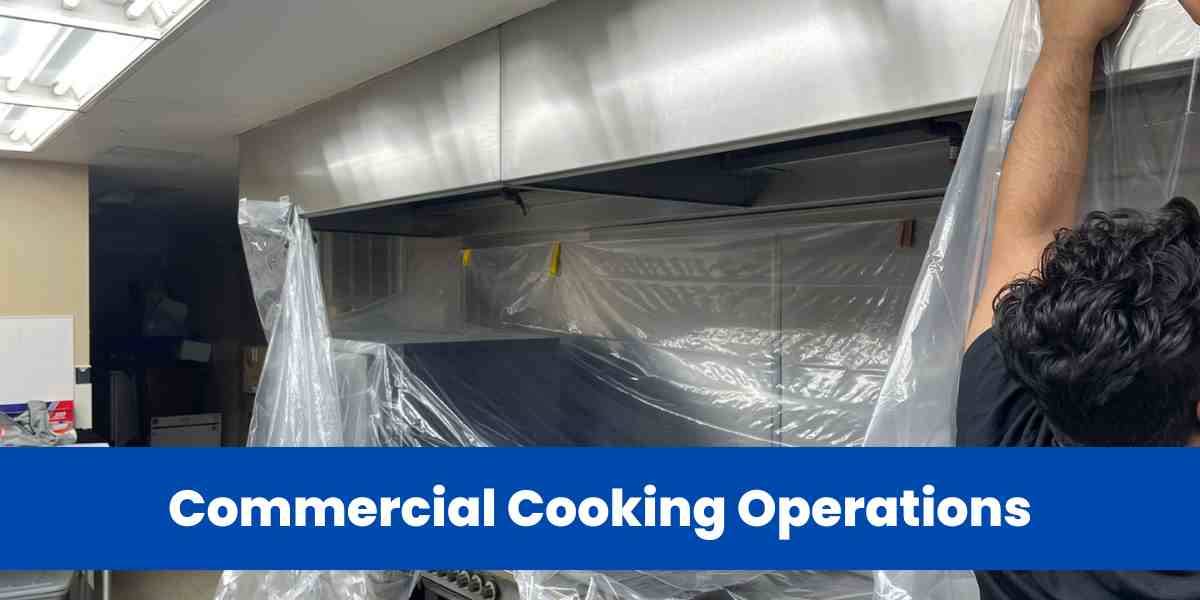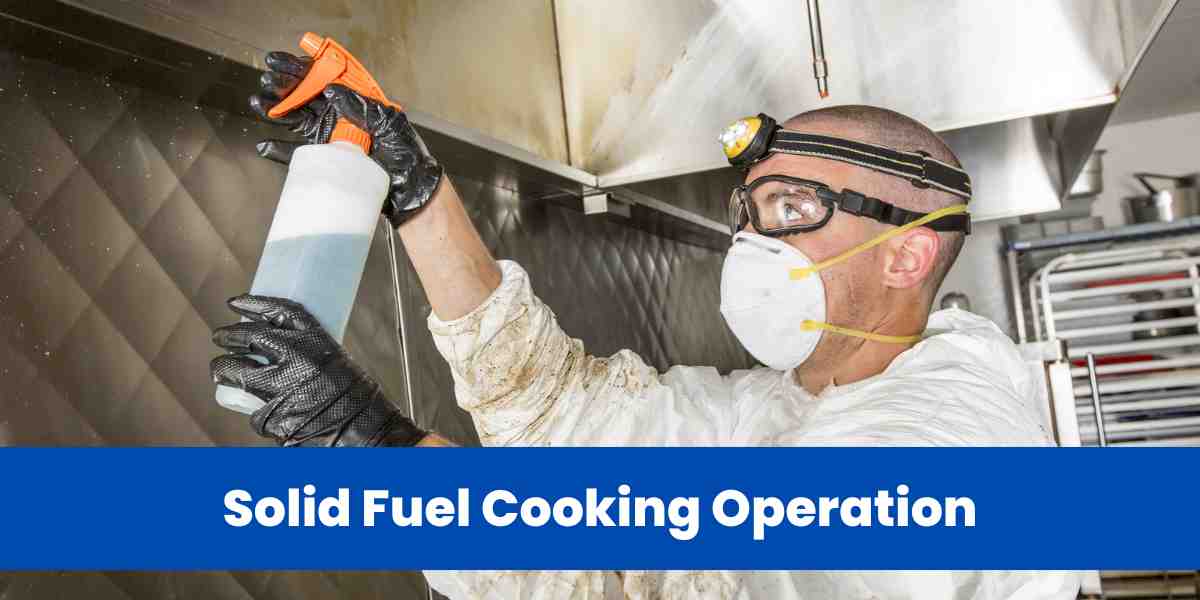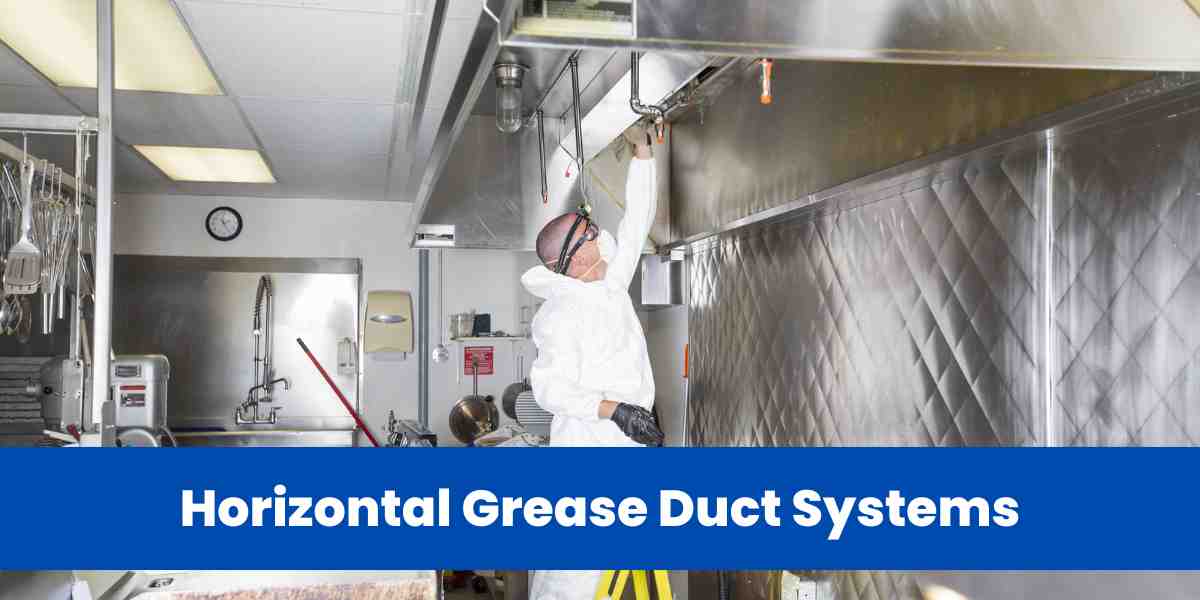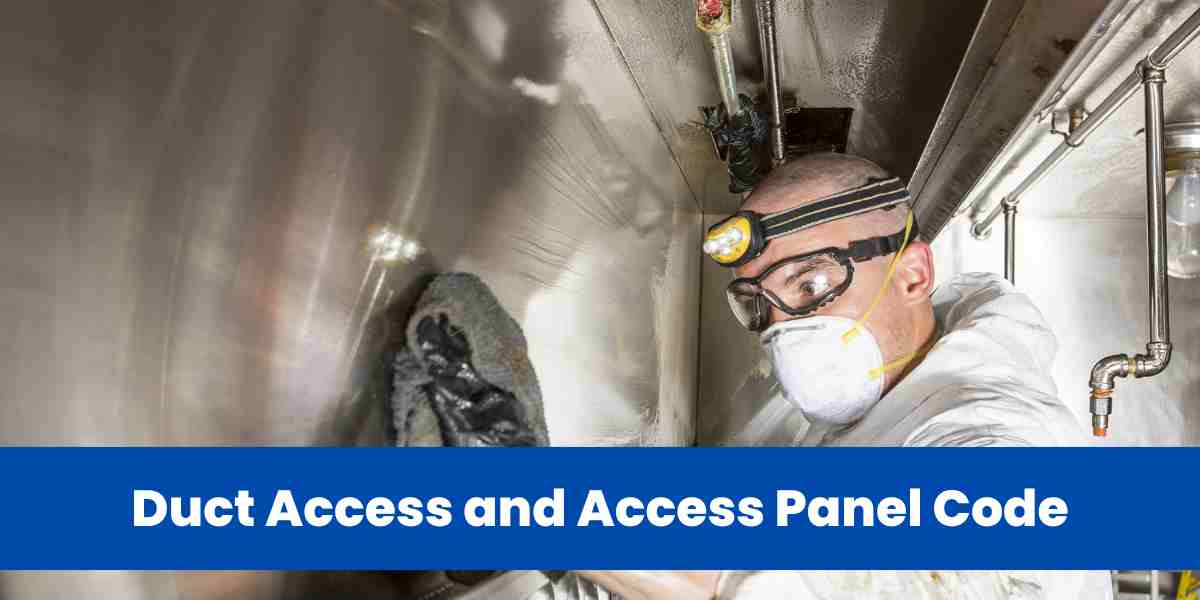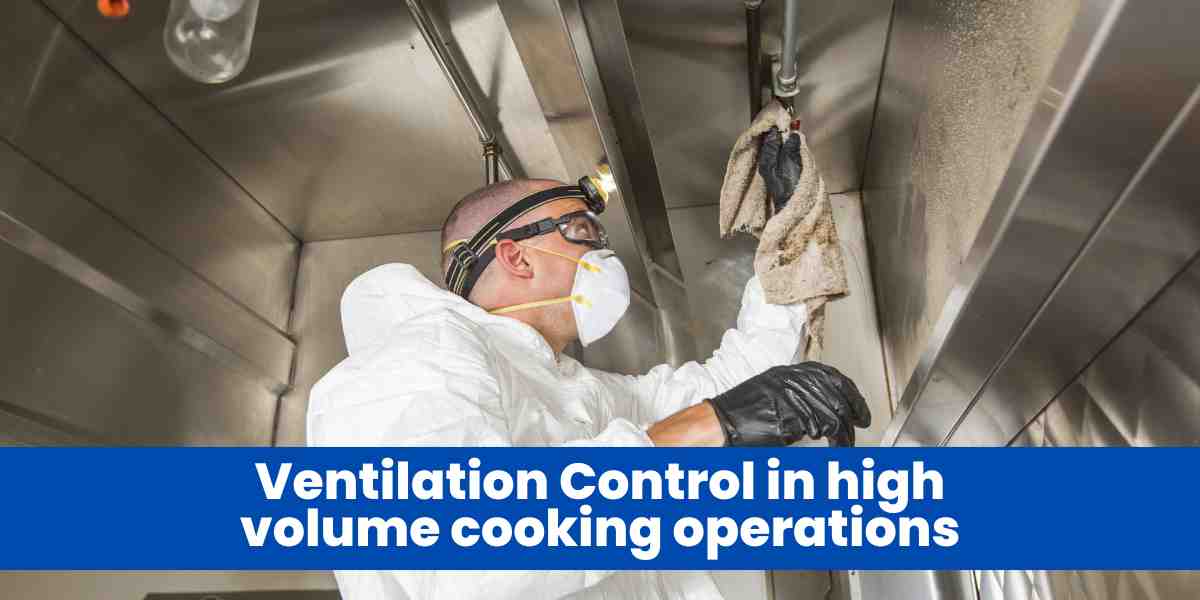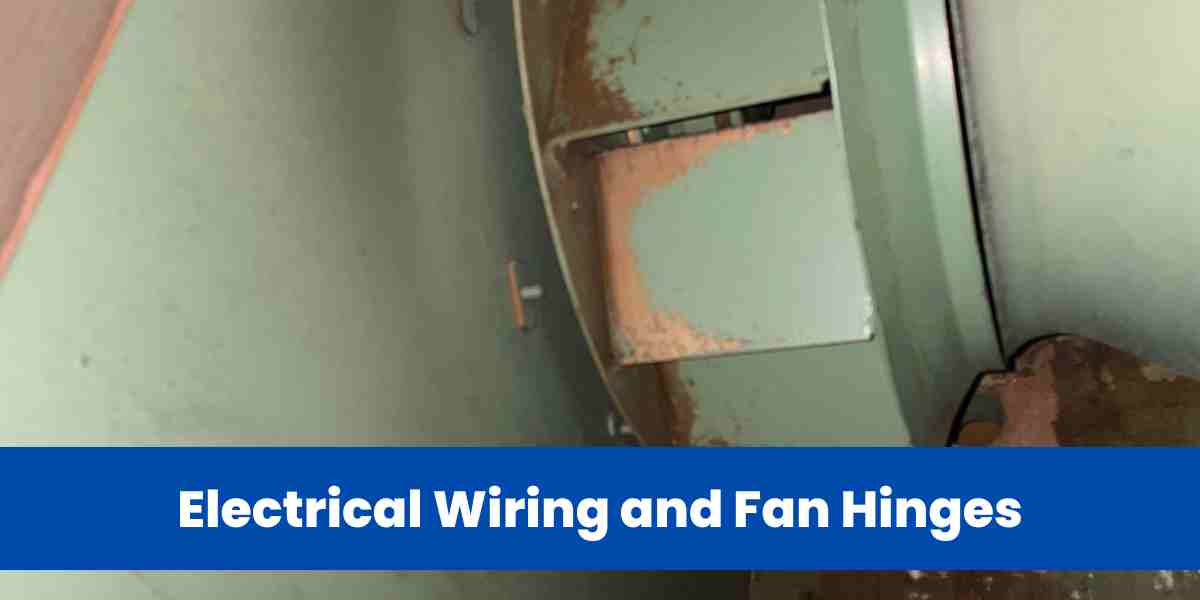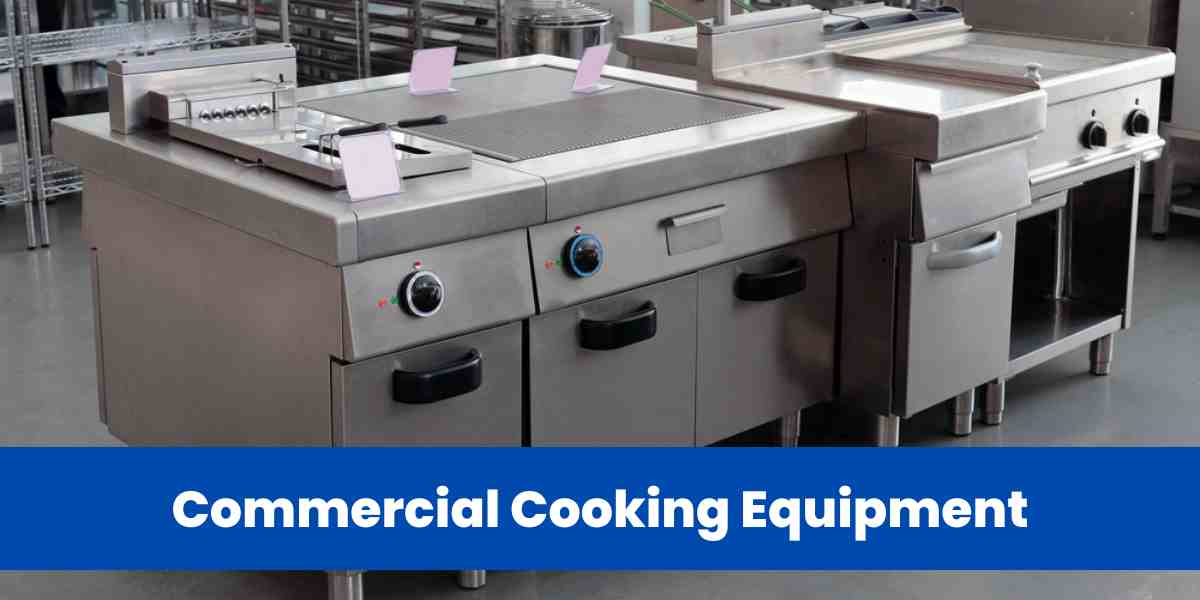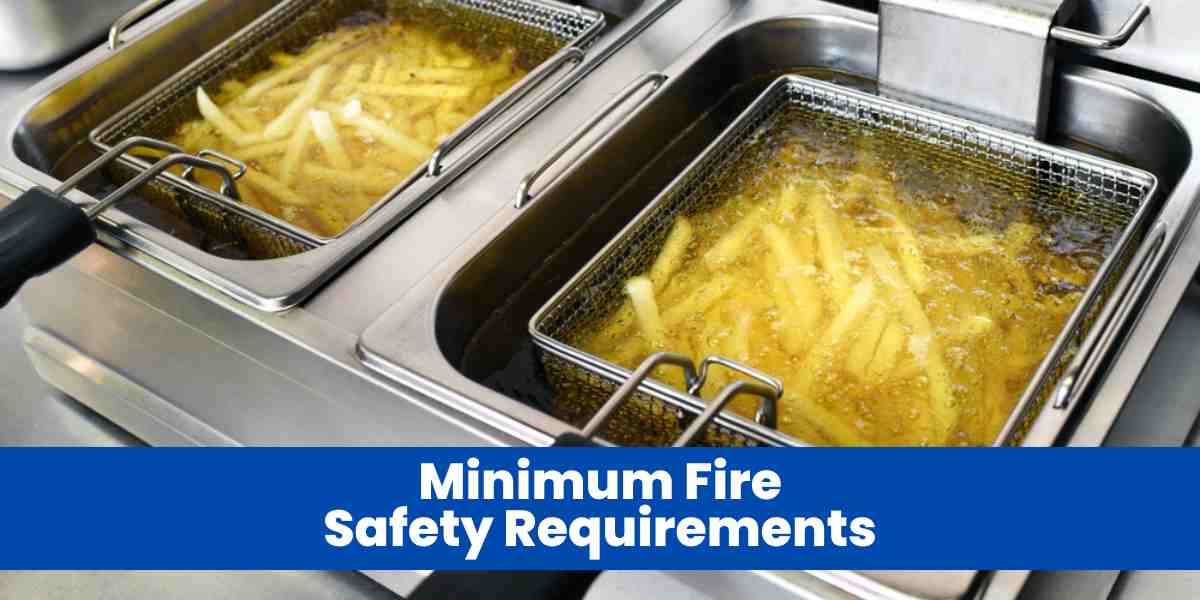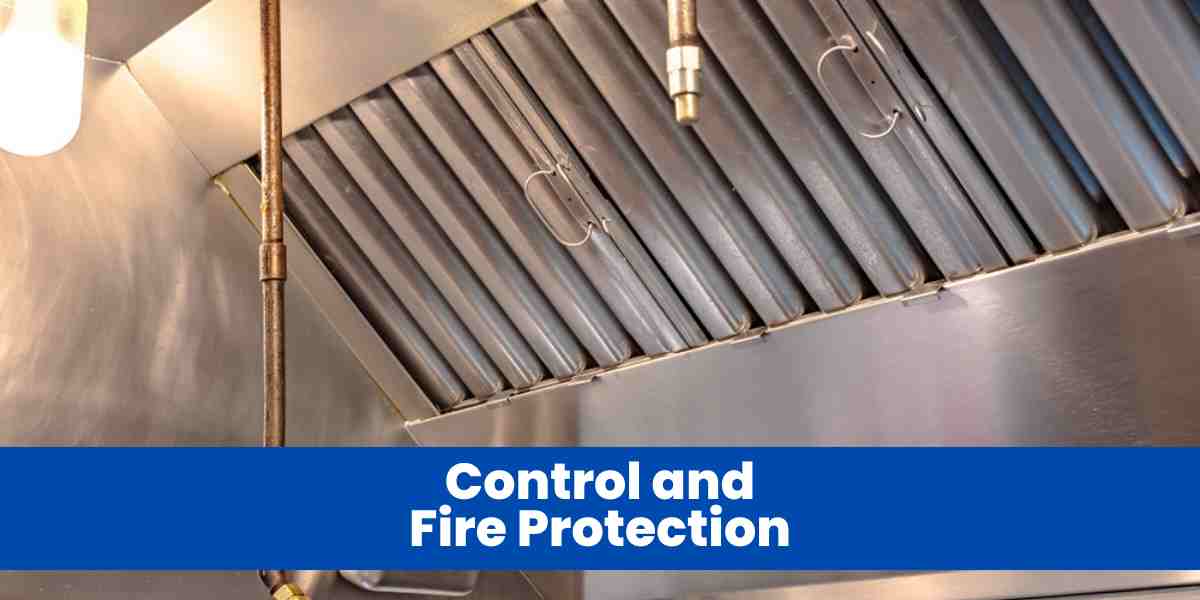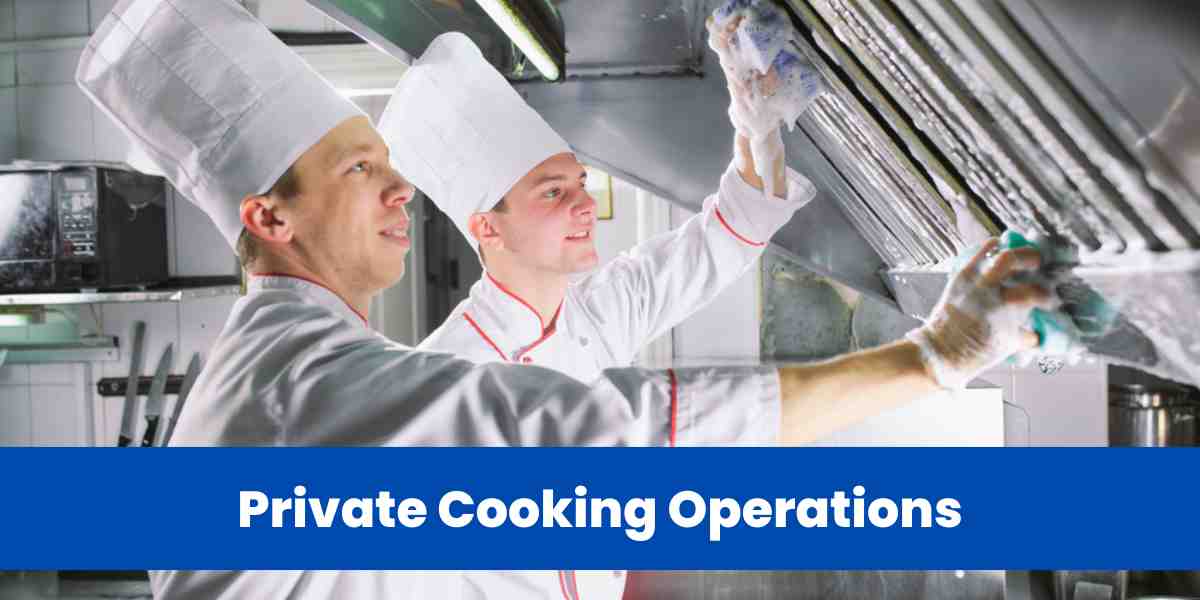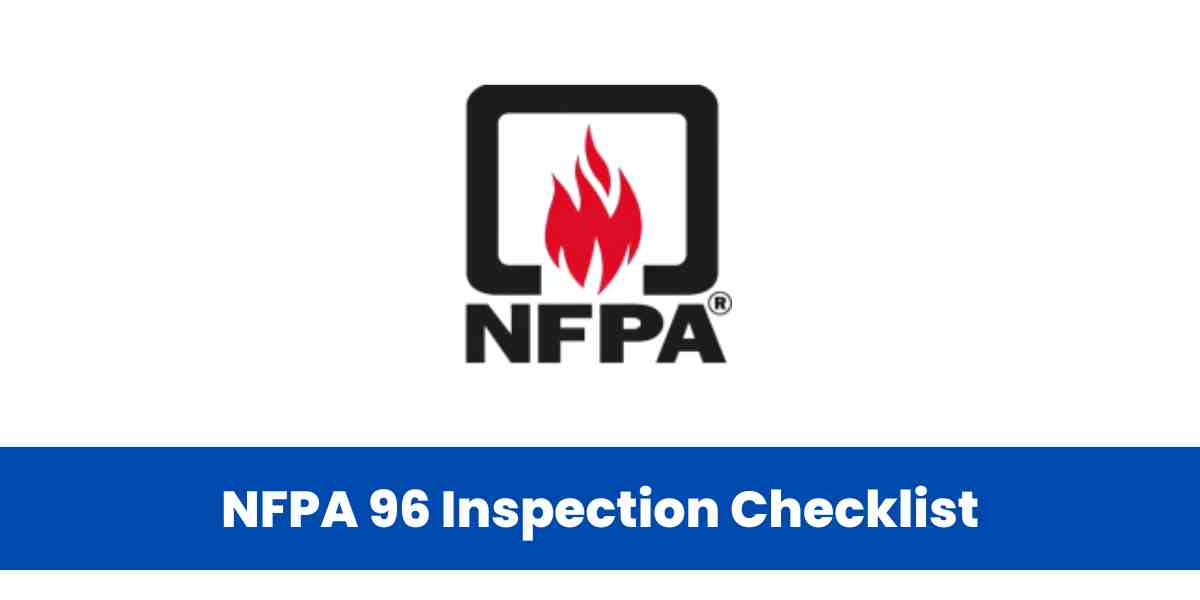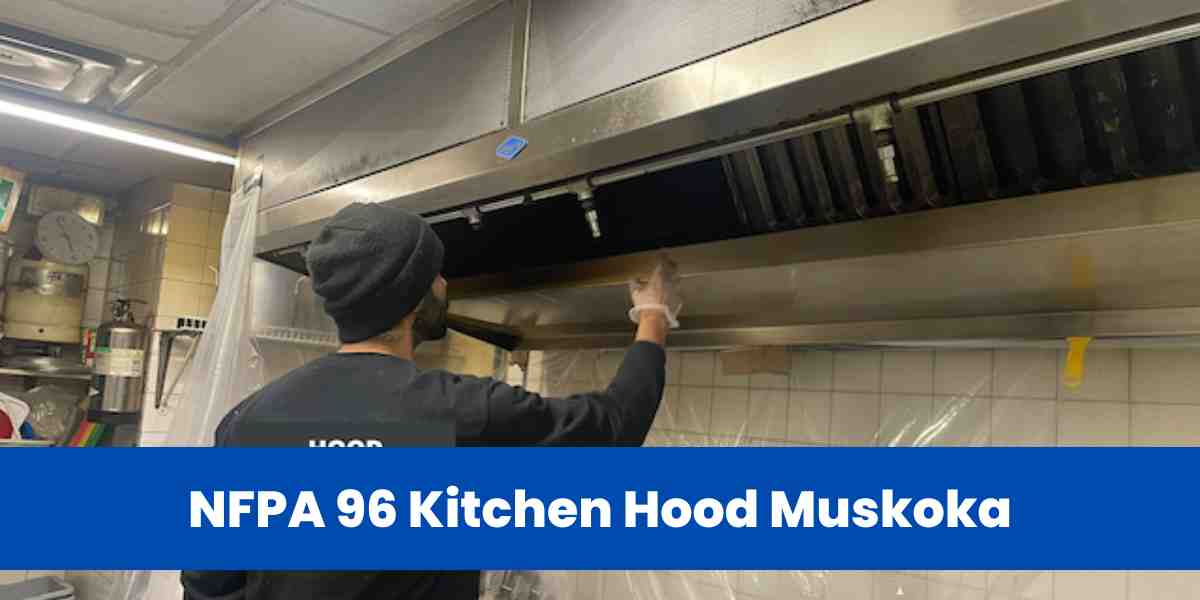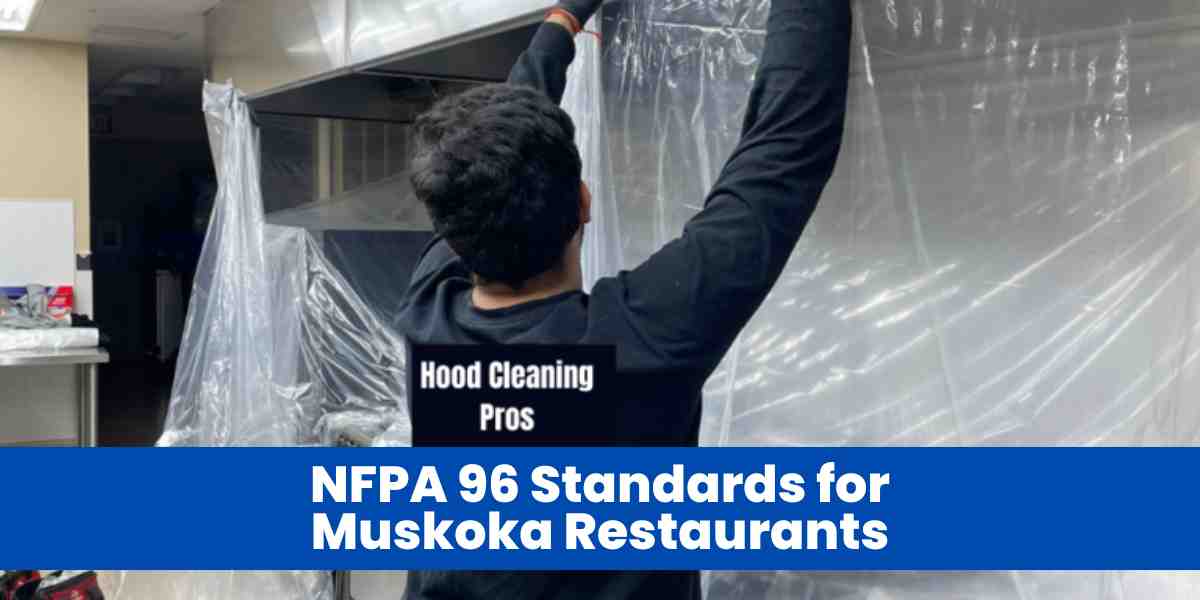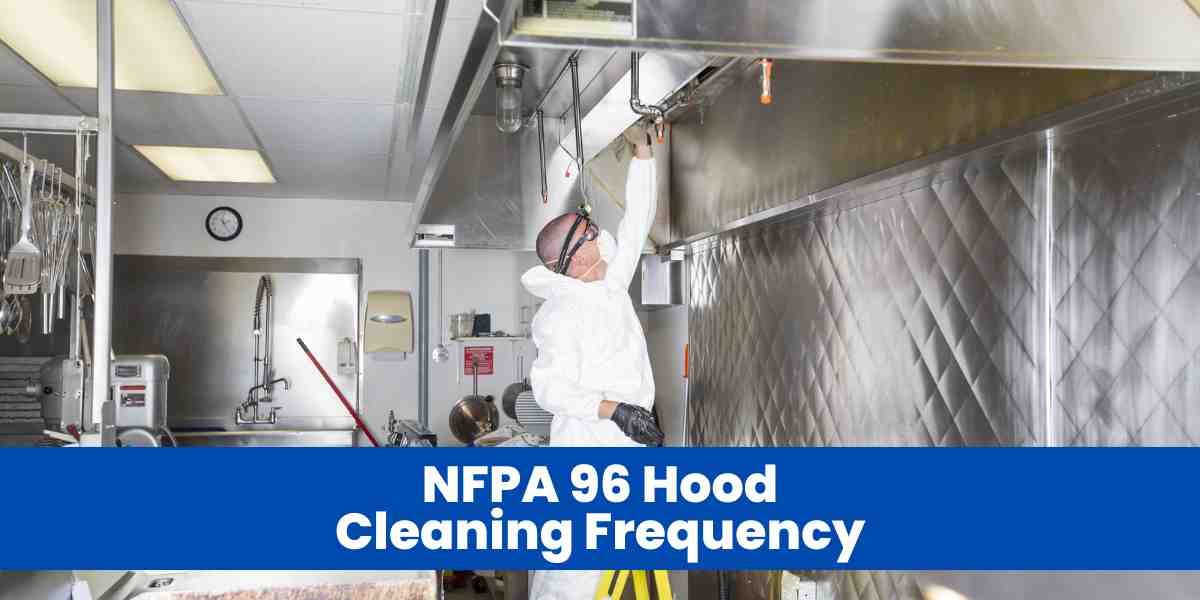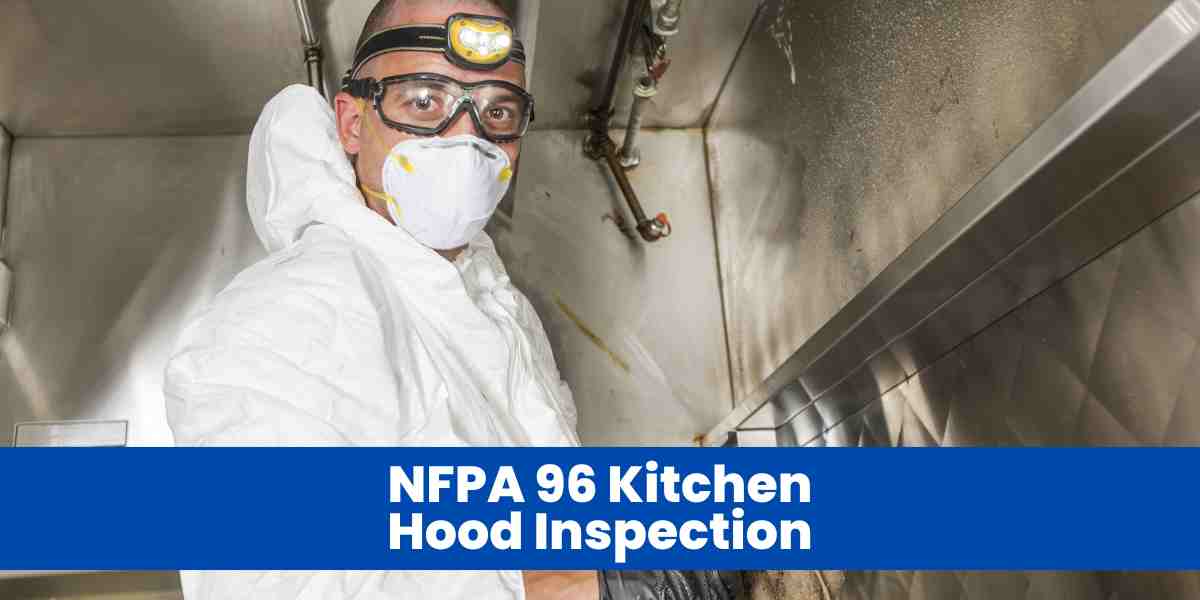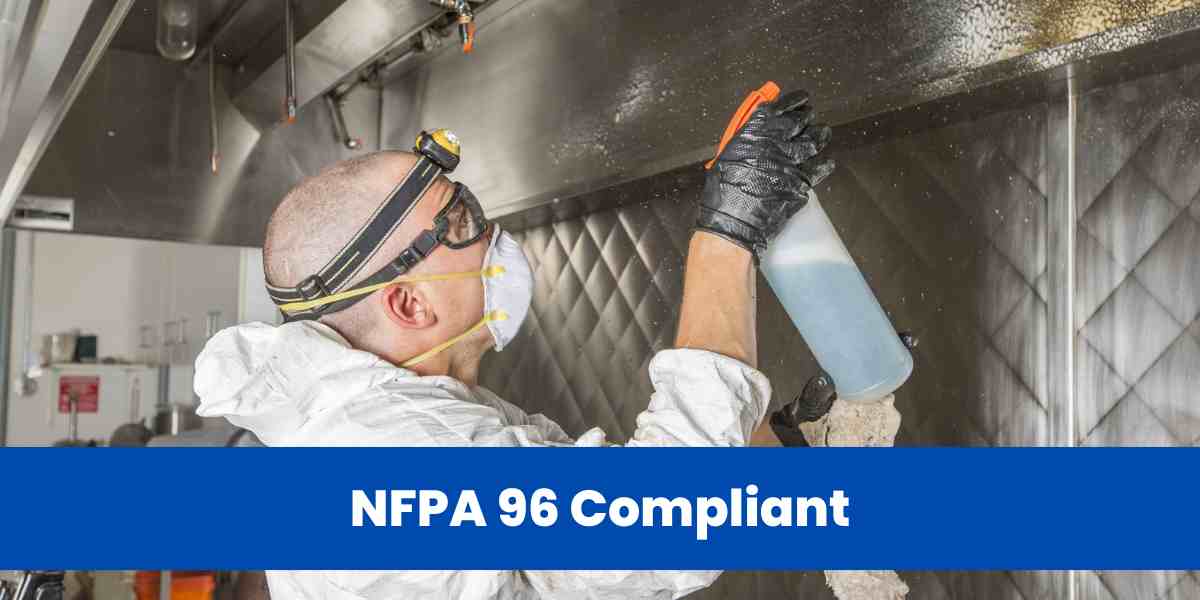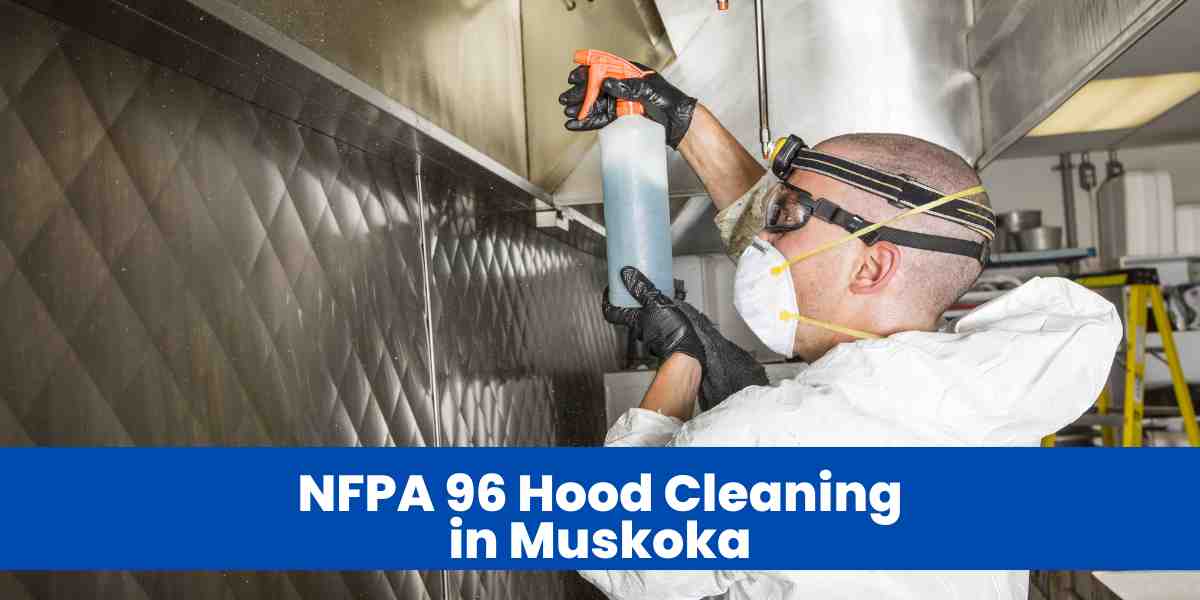NFPA 96
Codes and regulations for protecting people from fire and other hazards are developed by the NFPA (National Fire Protection Association). When it comes to the layout, construction, and upkeep of their facilities, Muskoka’s eateries should follow the rules laid down in the National Fire Protection Association’s guidelines.
Fire suppression systems, smoke detectors, exits, emergency lighting, and ventilation systems are only a few of the many important aspects of a building that are addressed in the NFPA rules.
Restaurants in Muskoka are subject to the NFPA’s health codes as well. These rules include everything from where and how food is prepared, to what kinds of equipment must be used, to what kinds of training employees must undergo. In order to verify that these rules are being followed, the local fire department should conduct routine inspections.
Restaurants in Muskoka may protect their staff and clientele by following the guidelines set out by the National Fire Protection Association.
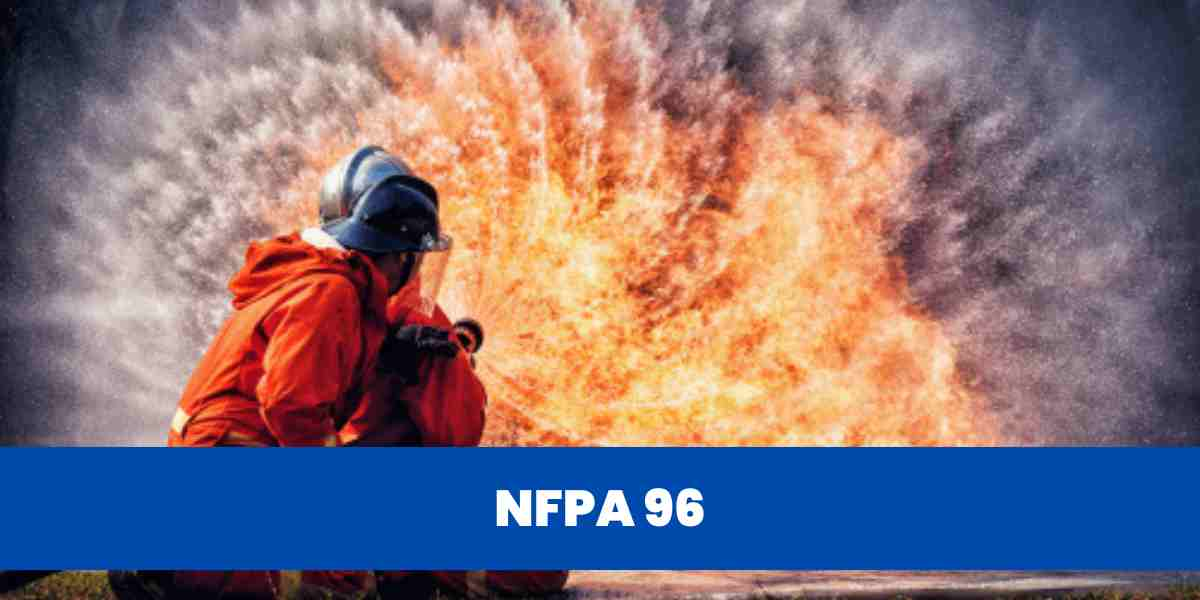
Request a Estimate
exhaust cleaning estimate today.
NFPA 96 Fire Codes
The National Fire Protection Association (NFPA) establishes the NFPA 96 Fire Codes to ensure the security of commercial kitchen exhaust systems. The goal of these regulations is to make commercial kitchens safer places to work by limiting the potential for fire, smoke, and other hazards to result from the usage of cooking equipment.
Grease-laden gases released during culinary processes are of particular interest to the standard. Makeup air needs, exhaust system layout, duct building supplies, fan horsepower, electrical specifications, and service access are all addressed.
To guarantee the safe operation of equipment at all times, this code also details what must be done during installation, maintenance, and inspection. The use of deep fat fryers and char broilers, for example, has additional regulations. In the end, NFPA 96 lays a solid groundwork for managers of commercial kitchens to follow in order to ensure the safety of their personnel.
To keep up with the NFPA 96 fire codes, be sure to work with Muskoka Hood Cleaning. Call us to learn about our kitchen equipment and hood cleaning services.
The scope of NFPA 96
The scope of NFPA 96 as it relates to commercial kitchens in Muskoka is quite extensive. This code covers many aspects of the design, installation and operation of kitchen ventilation systems, including:
-
Makeup air requirements
-
Exhaust system design
-
Duct construction materials
-
Fan sizing
-
Wiring requirements
-
Access for service personnel
-
Proper installation and maintenance procedures
Additionally, NFPA 96 also provides guidelines for specific types of equipment used in commercial kitchens such as deep fat fryers and char broilers. By following the standards set by NFPA 96, restaurant owners can ensure a safe working environment for their employees and customers.
For a more detailed explanation of NFPA 96, call us today. We’ll let you in on our services that will help your restaurant be up to code at all times.
NFPA Fire Codes for Rooftop Grease Containment
The National Fire Protection Association (NFPA) establishes fire codes for rooftop grease containment to ensure the safe design and operation of such systems in commercial kitchens. These regulations were established to lessen or eliminate fire risks associated with cooking activities that release flammable grease fumes.
Roof construction, downspouts and drainage, access regulations, venting & termination, support systems, and control switches are only some of the areas that are addressed by the rules. Rooftop grease containment systems must also be listed by a recognized testing lab and NFPA 96 compliant to be used in commercial kitchens.
In addition, these containment systems need to be built in a way that allows for safe maintenance by appropriately trained staff. All access panels must have secure latches and hinges to prevent unauthorized access to the system, and all lids and doors must have adequate seals to prevent the spread of fire. Furthermore, all vents must be equipped with a suitable flame arrestor, and all potential sources of ignition must be completely cut off.
Duct Access and Access Panel Code
Duct access and access panel criteria are spelled forth in NFPA Standard 96 by the National Fire Protection Association. There must be sturdy locks and hinges on all access panels to prevent any unwanted intruders from getting into the system. Likewise, it’s important to ensure that the seals on any doors or lids are airtight.
A proper flame arrestor must be installed in all exhaust vents, all potential fire sources must be eliminated, and all wiring must be installed in accordance with state and municipal electrical codes. This legislation aids eateries in providing a risk-free workplace for its staff members and guaranteeing that their cooking facilities are up to par with national regulations.
NFPA Code 96 for Hood Grease Filters
All filters inside the hood system must be able to collect grease particles, hence NFPA Code 96 is important to hood grease filters. This necessitates their construction from a material capable of entrapping and holding the grease molecules, such as stainless steel with a fine enough mesh. These filters also need to be made in a way that makes cleaning or replacing them as painless and risk-free as possible.
Installation and maintenance of hood grease filters are subject to regulations outlined in the NFPA Code. Filters must be installed and secured appropriately, any gaps between the filter and hood must be sealed, filters must be tested for airflow resistance, maintenance records must be kept, and filters must be inspected regularly to guarantee proper operation.
Electrical Wiring and Fan Hinges
Muskoka Hood Cleaning technicians are experienced and knowledgeable in the installation and repair of fan hinges and electrical wiring. They can ensure that all components meet NFPA Code 96 and local electrical code requirements, as well as provide expert advice on proper set-up parameters and safety regulations.
Our technicians can also assist in troubleshooting any existing or potential problems that may arise with the fan hinges or electrical wiring. They are highly trained in visual inspections, including testing for current draw, identifying insulation resistance levels, verifying proper grounding of components, and checking for voltage imbalance. This allows them to quickly identify and address any issues that may be causing performance issues within the hood system.
Commercial Cooking Equipment
Here are some of the many reasons why Muskoka Hood Cleaning should be your first choice for thorough cleaning of commercial kitchen appliances:
With extensive knowledge of NFPA Code 96 and local health requirements, Muskoka Hood Cleaning professionals guarantee that every step of the cleaning process is carried out in complete safety.
Muskoka Hood Cleaning has the experience necessary to complete even the most difficult work, as they have been doing it for over ten years.
Musoka Hood Cleaning is trained in the most up-to-date methods and equipment, so they can get the work done fast without compromising on quality or safety.
Minimum Fire Safety Requirements
NFPA 96 requires commercial kitchens and food establishments the following minimum fire safety requirements:
Smoke Alarms – Smoke alarms must be installed and maintained in all commercial kitchen spaces as per the applicable local fire safety codes.
Fire Extinguishers – Fire extinguishers must be installed and maintained in all commercial kitchen spaces, with appropriate signage to indicate their location.
Escape Routes – All escape routes must be clearly marked and exit signs visible. A plan of action should also be in place in case of a fire emergency, including evacuation procedures and contact information for the local fire department.
Emergency Lighting – Emergency lighting must be installed in areas where natural or artificial lighting may fail during a power outage to ensure that people can easily evacuate the premises safely during an emergency situation.
Contact Muskoka Hood Cleaning today so we can help you keep up with these requirements.
Control and Fire Protection
The NFPA 96 standard outlines the systems and methods that must be implemented and maintained to ensure the safety of employees, customers, and property.
The standards include requirements for:
Ventilation systems – Including proper installation, cleaning and maintenance to reduce fire risk.
Fire protection systems – Including sprinklers, fire detection equipment and alarms, fire extinguishers, emergency lighting, smoke barriers and other containment measures.
Control systems – Including switches, relays, alarm contacts and manual controls which help maintain safe conditions in the kitchen environment.
Private Cooking Operations
Every business kitchen must to adhere to the rules and regulations set out by the National Fire Protection Association (NFPA) 96 for fire prevention and control. This category comprises eating and drinking establishments such as restaurants, canteens, cafeterias, bars, and similar places.
In order to limit the risk of fire in commercial kitchens, these rules also apply to private cooking operations like catering firms and non-commercial home kitchens.
In accordance with NFPA 96, for instance, all food preparation areas must be equipped with working sprinklers, smoke detectors, and emergency lights. Private kitchens must follow these regulations as well to protect their clients and employees.
NFPA 96 Inspection Checklist
To ensure compliance with NFPA 96, an inspection checklist has been developed (NFPA). The fire prevention precautions outlined in the checklist are meant to be used in commercial cooking equipment
Items on the inspection checklist may include:
It is imperative that all ventilation systems be installed correctly, cleaned often, and maintained on a regular basis.
Sprinklers, fire alarms and extinguishers, emergency lights, smoke barriers, and other containment measures are all part of the fire protection systems that should be assessed.
Control systems entail checking the functionality of all switches, relays, alarm contacts, and other manual controls.
Examining typical employee activities, such as using correct cooking methods and storage procedures, is an important part of fostering a culture of safety in the workplace.
Before beginning operations in a commercial kitchen, it is crucial to double-check that all items on an NFPA 96 inspection checklist have been checked off.
NFPA 96 Kitchen Hood Muskoka
The National Fire Protection Agency (NFPA) sets forth a number of guidelines that must be followed in regard to the commercial kitchen hood. These guidelines are designed to reduce the risk of fire in commercial kitchen spaces and apply to all types of hoods, including canopy-type hoods, interior ducted hoods, and exterior exhaust hoods.
The following are some of the main requirements laid out by NFPE 96 regarding the installation, operation, and maintenance of a commercial kitchen hood:
Installation – The hood must be properly installed with adequate seals and clearances from combustibles. This ultimately prevents the production of grease-laden vapors. The installation also relates to ventilation control and fire protection.
Operation – The hood must be operated for optimal performance at consistently maintained temperatures.
Maintenance – The filters in the commercial cooking equipment must be regularly inspected for buildup and kept clean at all times. Additionally, regular inspections should be conducted to ensure that all components are functioning correctly.
If you own a restaurant or food establishment in Muskoka, don’t hesitate to contact Muskoka Hood Cleaning to avail of Ontario’s most dependable and highest-quality kitchen exhaust system cleaning service programs.
NFPA 96 Standards for Muskoka Restaurants
Restaurants in Muskoka have their own special set of problems that arise in the industrial kitchen and in their commercial cooking operations. The safety of your employees and customers depends on your adherence to the standards established by the National Fire Protection Association (NFPA). A few things to remember regarding the NFPA 96 regulations for Muskoka eateries:
In order to prevent fires, exhaust systems must be constructed and maintained in accordance with National Fire Protection Association (NFPA) 96 standards.
All fire safety equipment, such as sprinklers, grease removal devices, alarms, extinguishers, and emergency lights, must be in good working order and periodically inspected.
The cooks and dishwashers in the kitchen should always use safe procedures when preparing food and storing supplies.
The filters in hoods should be examined and cleaned on a regular basis to prevent any accumulation during commercial cooking operations.
Restaurants in Muskoka may stay safe and up to code with the aid of these NFPA 96 regulations.
NFPA 96 Hood Cleaning Frequency
When it comes to commercial kitchen hoods, the NFPA has certain recommendations on how they should be set up and maintained. Remember that these hoods need frequent cleaning to keep them safe and up to code.
Every three months, as recommended by the National Fire Protection Association (NFPA), hoods should be cleaned. If there is ever a buildup on the filters, it will be cleared away at this cooking inspection frequency systems before it may cause an accident or fire.
In addition, all hood parts should be checked regularly to guarantee their continued good condition and operation. This prevents the likelihood of producing grease laden vapors.
Restaurants may guarantee that their hood and duct system are always clean, free of grease contamination, and in compliance with health and safety regulations if they follow this timetable.
NFPA 96 Kitchen Hood Inspection
Regular inspections must be performed to guarantee the safety and functionality of the hoods, as mandated by the National Fire Protection Association (NFPA). Testing the motors and fans is essential, but a visual check of every part, including the grease removal devices, is also necessary. Filter buildup also has to be cleared away since it is a potential fire threat.
Compliance with NFPA regulations for high-volume cooking operations requires routine inspections to ensure that all facilities are operating safely and up to code. Restaurants may maintain a secure and productive kitchen by adhering to these standards.
NFPA 96 Compliant
By offering cutting-edge hood cleaning solutions, Muskoka Hood Cleaning ensures that restaurants may continue operating legally. All surfaces will be cleaned completely by our team of experts using our specialist equipment.
Moreover, in accordance with NFPA 96 guidelines, we check each hood for any flaws or problems that need fixing. We also evaluate your kitchen’s ventilation control and exhaust system.
With the help of Muskoka Hood Cleaning, commercial cooking operations can easily conform to NFPA 96 regulations. Using our services, eateries may be confident that their commercial kitchen is in compliance with fire safety standards and codes.
In addition, our expert staff is committed to meeting each client’s unique demands in a timely manner while providing exceptional customer service. Be it the installation of a grease removal device or creating a system to capture grease laden vapors, we’re up for it!
NFPA 96 Hood Cleaning in Muskoka
If you’re in need of assistance meeting the exhaust system standards set out by the National Fire Protection Association (NFPA), Muskoka Hood Cleaning should be at the top of your list of potential service providers.
As a professional hood cleaning service, we provide a number of advantages that make us the best option for any restaurant or food service business that needs to adhere to NFPA regulations.
Our dedication to satisfying our clients is one of the key reasons they pick Muskoka Hood Cleaning. Expertise, friendliness, and diligence on the part of our staff have helped us earn a solid reputation among our clients.
Moreover, we exclusively utilize cutting-edge equipment and methods while cleaning hoods and grease removal devices, guaranteeing that all surfaces are spotless and in compliance at all times.

